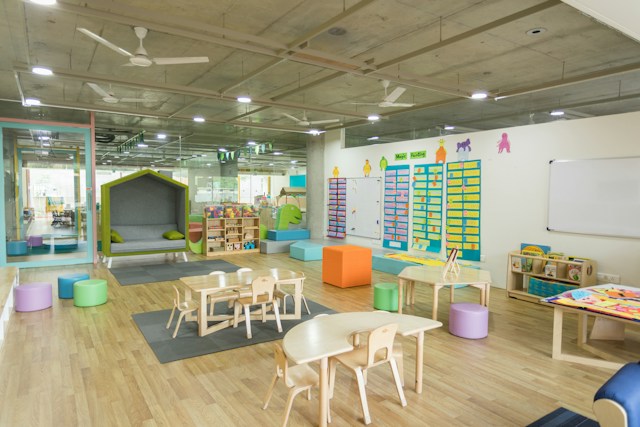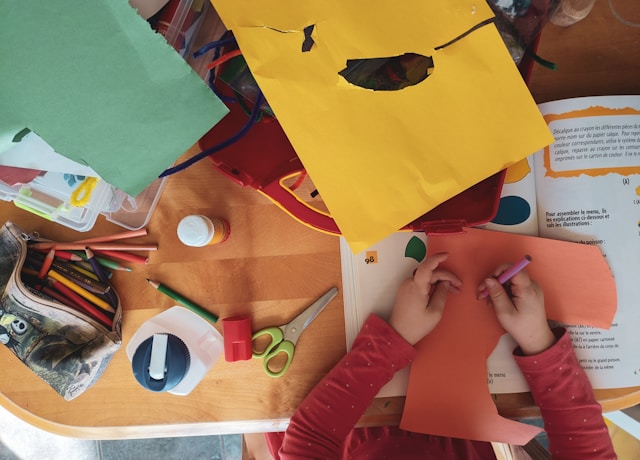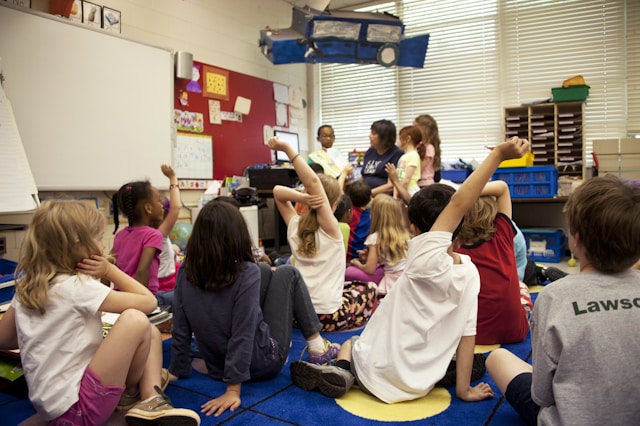What is an English Playgroup?
An English playgroup is a structured and supervised environment where young children engage with teachers in various activities that promote their overall development. It is an essential component of early childhood education, providing a foundation for learning and social interaction. English playgroups are designed to cater to the specific needs of children who are beginning to develop their language skills and are often conducted in English to support language acquisition.

Definition of English Playgroup in Hong Kong
English playgroups typically cater to children between the ages of 18 months to 3 years. They offer a range of activities such as singing, storytelling, arts and crafts, and free play to stimulate the children's cognitive, social, and emotional development. The focus is on creating a nurturing and stimulating environment where children can learn through play and interaction with their peers.

Importance of Early Childhood English Playgroup Education
Early childhood education, including participation in English playgroups, plays a crucial role in a child's overall development. It lays the foundation for future learning and helps children build essential skills such as communication, problem-solving, and social interaction. Research has shown that quality early childhood education programs can have a lasting impact on a child's academic and social success.

Benefits of English Playgroup
Participating in an English playgroup offers a wide range of benefits for young children, contributing to their holistic development.
Children Social and Emotional Development
English playgroups provide children with the opportunity to interact with their peers in a structured setting. Through activities and play, children learn to share, take turns, and develop empathy. These experiences help them build social skills and emotional resilience, laying the groundwork for healthy relationships in the future.
Cognitive Development
Engaging in activities at an English playgroup stimulates children's cognitive abilities. From problem-solving tasks to creative expression through art and music, these activities encourage children to think critically and explore their surroundings. This, in turn, supports the development of essential cognitive skills.
Language activities and Communication Skills
Since English playgroups are conducted in English, they offer an immersive language environment for children. Regular exposure to the English language at a young age can significantly impact a child's language acquisition and proficiency. Children also have the opportunity to practice their communication skills through interactions with teachers and peers.
Choosing the Right English Playgroup Teachers
When selecting an English playgroup for your child, parents should focus on several factors should be taken into consideration to ensure a positive and enriching experience.
Location and Facilities
Consider the location of the playgroup and the facilities it offers. A convenient location and well-equipped facilities can contribute to a positive experience for both you and your child. Look for playgroups in areas such as Yuen Long, Causeway Bay, Central, Shatin, and Yau Ma Tei in Hong Kong.
Curriculum and Teaching Approach
Examine the curriculum and teaching approach of the playgroup. A well-rounded curriculum that includes a mix of structured activities and free play can provide a balanced learning experience for children. Additionally, inquire about the teaching approach to ensure it aligns with your child's learning style.
Teacher Qualifications and Experience
The qualifications and experience of the teachers at the playgroup are crucial. Qualified and experienced teachers can create a supportive and engaging environment for children, fostering their love for learning and exploration.
Tips for Enhancing Your Child's Playgroup Experience
As a parent or caregiver, there are several ways to enhance your child's experience at an English playgroup.
Encouraging Participation in Activities
Encourage your child to participate in various activities at the playgroup. Engaging in different tasks and interacting with peers can help them develop confidence and a sense of accomplishment.
Building a Strong Relationship with Teachers
Establishing a strong relationship with the teachers at the playgroup can provide valuable insights into your child's progress and behavior. Open communication with the teachers can also help create a supportive network for your child's development.
Extending Learning at Home
Support your child's learning by extending the playgroup experience at home. Engage in activities that reinforce what they have learned at the playgroup, such as reading books, doing simple art projects, and engaging in imaginative play.
Conclusion
Participating in an English playgroup is a valuable experience for young children, offering numerous benefits for their development. By choosing the right playgroup and actively engaging in your child's learning journey, you can contribute to building a strong foundation for their future academic and social success. With the right support and guidance, your child can thrive in an English playgroup and beyond, setting the stage for a lifetime of learning and growth.
